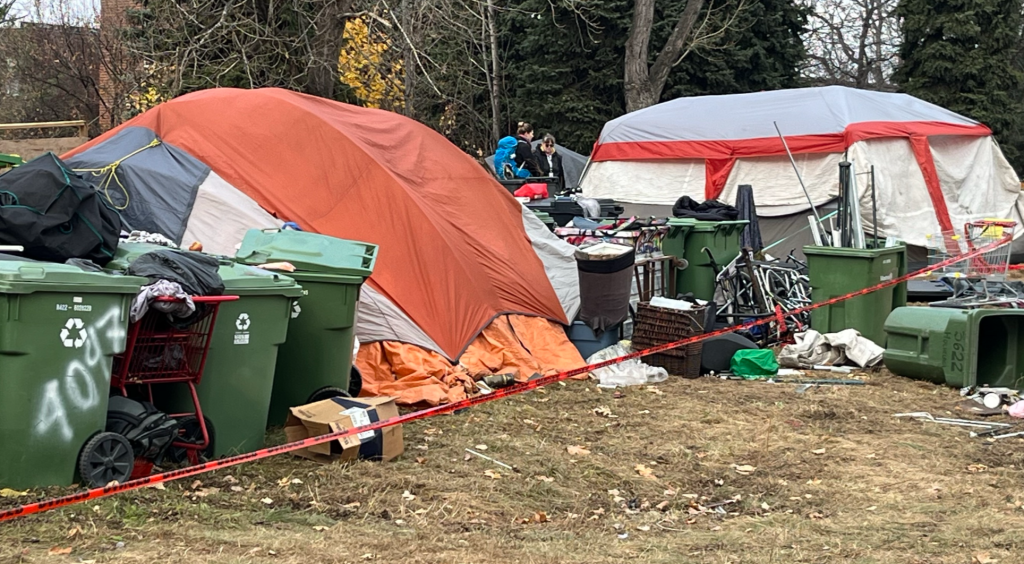More than three out of four overdose deaths occur at home in Montreal

Posted August 31, 2023 9:08 am.
Last Updated August 31, 2023 9:10 am.
MONTREAL – Forget the cliché of the young drifter who washes up in an alley and dies of an overdose with a syringe in his arm. The current hecatomb of drug overdoses affects all age groups and all classes of society.
According to new data released by Montreal’s public health department (DRSP), 77 per cent of overdose deaths occur in homes, and around 9 per cent of deaths involve homeless people.
These figures were compiled between August 2022 and July 2023 in the Montreal area. In all, there were 175 deaths from suspected drug intoxication, including 138 men. A closer look reveals that the age group most affected is 40-59.
“It’s important to remember that behind these figures, each figure represents a person with a history, a family and loved ones,” points out Dr. Benoit Corriveau, who specializes in preventive medicine and harm reduction at the DRSP.
On the occasion of International Overdose Awareness Day, the DRSP hopes to help break down certain taboos.
RELATED
Canadian pediatricians seeing a rise in overdoses among youth
Montreal getting supervised inhalation site, a first in Quebec
Quebec boosting funding for supervised consumption sites in Montreal
“We need to talk about it,” says Dr. Corriveau. “We have to take advantage of occasions like this to explain that there is often a context. There are many socio-economic factors, and there may have been previous traumas. There are lots of reasons why people might use psychoactive substances.”
The Association québécoise pour la promotion de la santé des personnes utilisatrices de drogues (AQPSUD) – which advocates for the health of drug users, suggests that many people use to ease physical or emotional pain.
“We’re talking about suffering. We need to accept as a society that sometimes, there is physical or mental suffering that requires medication, and if we don’t provide people with the substance they need, they’ll go elsewhere and self-medicate,” says the Executive Director of AQPSUD, Chantal Montmorency.
Adding that the data by public health doesn’t surprise her. The typical victim is not “the young punk we imagine”, she describes. In her eyes, they are far more likely to be men from a generation that has not learned to talk about their pain and take care of themselves.
Effective supervised sites
A number of additional measures need to be put in place to stem the crisis. Public Health recommends decriminalizing the simple possession of all drugs. A position the AQPSUD agrees with.
“Using drugs doesn’t mean you’re addicted and sick,” she argues. “Nor should we be criminalized just because we use drugs, because legal drugs are plentiful. The drug that wreaks the most havoc is alcohol, and it’s everywhere!”
Among the actions to be taken in the shorter term, Public Health is talking about better support for supervised consumption services. Adding more sites should be opened outside central neighborhoods.
These sites, run by community organizations such as Spectre de rue, Dopamine, CACTUS Montréal and l’Anonyme, have prevented a large number of deaths. An average of 49 emergency interventions per month are reported at these facilities. That’s a lot of people who wouldn’t have benefited from professional support if they’d been home alone.
Last July, La Presse Canadienne revealed that these services are often without nursing staff, which limits their capacity to intervene. The DRSP is seeking to remedy the situation.
According to Dr. Corriveau, public health also wants to develop inhalation rooms, increase the availability of drug testing, and continue training staff in the use of naloxone, an overdose antidote.
_
The Canadian Press health content receives funding through a partnership with the Canadian Medical Association. The Canadian Press is solely responsible for editorial choices.
This report by The Canadian Press was first published in French on August 31, 2023.








